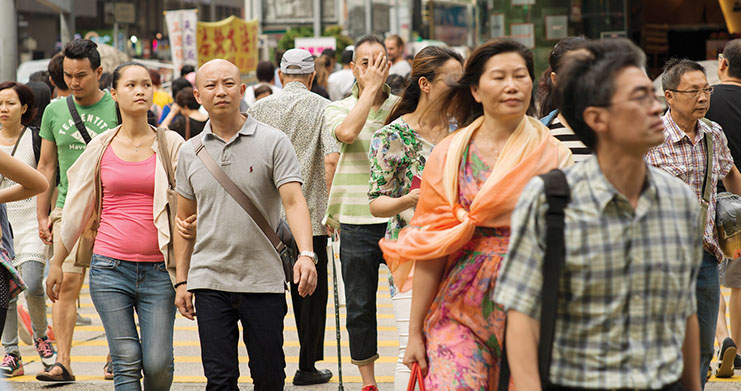
Dr Travis Kong invited four local and international artists to document the current lives of older gay men through photography.
(Courtesy of Gyorgy Ali Palos)

Hiding In Plain Sight
Older gay men in Hong Kong are so conditioned to conceal their sexuality that it took one seasoned researcher repeated attempts to gain an introduction to them. The effort has paid off with a research project, a handsome book and the founding of a support group.
In 2012, when legislator Cyd Ho proposed to consult the public on outlawing discrimination based on sexual orientation, she was voted down by legislators on both sides of the political divide. Prejudice against homosexuality is still strong and kicking in Hong Kong 25 years after it was decriminalised. No one knows this better than the gay men who came of age when their sexual preference was still a crime.
Many of them continue to live in the shadows, as Dr Travis Kong of the Department of Sociology discovered when he set out to research this group.
“There was no literature about sexual minorities born before World War II, not in studies about sexuality nor about ageing. They are really a marginal group,” he said. He secured a small research grant in 2009 to fill the gap but, although his contacts thought it was a good idea, “no one could introduce me to any older gay men. I had open advertisements in gay venues, bars, magazines – no response. Finally, a friend working at the Hong Kong AIDS Foundation mentioned they had a small group of older gay volunteers. I started to interview them one by one.”
Dr Kong conducted 20 in-depth interviews about how these men coped when their sexuality was stigmatised as a crime and mental deviance, and how they met other men and acted on their desires.
A popular meeting place was public toilets, where the men would euphemistically “go to the garden to see the fish”.
“Public toilets were like Starbucks for them. One man found a long-term partner there of 20-plus years. It’s ironic because people think public toilets are dirty but for them it was a private space, a special space to realise their same-sex desire,” he said.
Many continued to adhere to societal expectations, though. At least half the men interviewed had married women and had families. Some even said they did not want their families to know they were gay until after they died. “They think they are a good son, father, husband, grandfather, and fulfilling that obligation has overridden their own sexual identity.”
“These men grew up at a time when it was not the norm for someone to be attracted to the same sex. They may have heard the word ‘homosexual’ but it was quite remote, it didn’t relate to them. To me they are the first gay generation in Hong Kong. Before I started, I did not have any idea who they were or where they were. Where are they? Everywhere. They are invisible.”
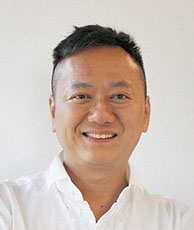
![]() These men grew up at a time when it was not the norm for someone to be attracted to the same sex. They may have heard the word ‘homosexual’ but it was quite remote, it didn’t relate to them. To me they are the first gay generation in Hong Kong.
These men grew up at a time when it was not the norm for someone to be attracted to the same sex. They may have heard the word ‘homosexual’ but it was quite remote, it didn’t relate to them. To me they are the first gay generation in Hong Kong. ![]()
Dr Travis Kong
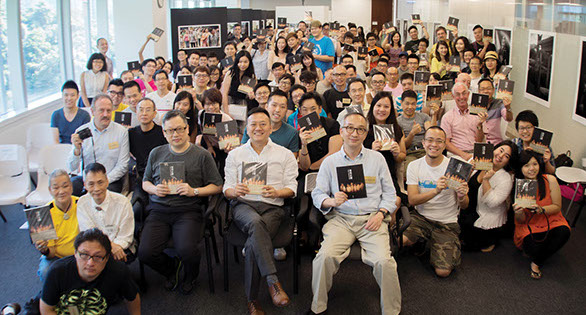
The book launch and photo exhibition in June, 2014.

A series of book talks and photo exhibitions have been held in Hong Kong, Guangzhou, Macau, and London since June, 2014. Above is the exhibition held at the Anatomy Museum, King’s College, London.
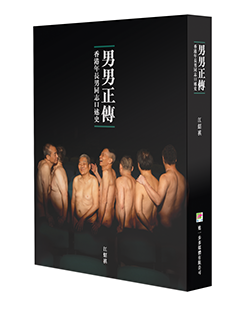
Gay and Grey: An Oral History of Older Gay Men in Hong Kong (2014) published by Step Forward Multi Media.
Still closeted
Sadly, many remain undercover even in these liberated times, cowed not only by the stigmatism they grew up with but also by that from another quarter – younger gay men.
“Hong Kong has had a substantial gay community since the 1990s. It’s very commercialised and stratified, and there is an emphasis on body, image and youth. Some gay saunas reject these older gay men. Gay business is business, not charity work, and they have their own rules. I had an impression that the gay world is more tolerant and accepting, but in a way it is not.”
Dr Kong thought better public awareness could help them and in 2014 published their stories in Gay and Grey: An Oral History of Older Gay Men in Hong Kong, which has gone through three printings, sold 3,000 copies, and is being translated into English. This was followed by talks and photo exhibitions in Hong Kong, Macau, Guangzhou and London. Most of the activities were supported by HKU’s Knowledge Exchange Fund.
The book more than raised awareness – it also led to the formation last year of the Gay and Grey self-help group and hotline, which were launched in part to help the men deal with the loneliness they felt. The book also inspired similar research in Guangzhou. Dr Kong hopes to study this community as well as the older gay Chinese community in London as part of the second phase of his research.
“I hope we can make more concrete advances in terms of how we deal with the physical, mental and emotional well-being of older people with different sexualities. There are also older lesbians and other sexual minorities. There are lots of possibilities,” he said.
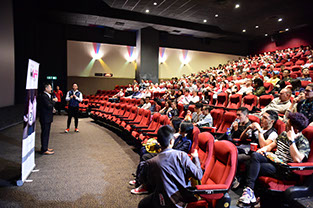
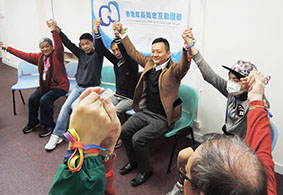
Dr Travis Kong (left) was honoured with the Prism Award 2014 at the Hong Kong Lesbian and Gay Film Festival for his contribution to the tongzhi community.
Dr Kong helped the group of older gay men set up a
self-help group Gay and Grey in December, 2014 to offer services and support to other older gay men in Hong Kong.

